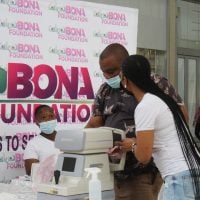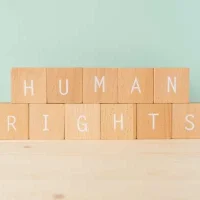Deadline: 3-Jul-25
The Italian Agency for Development Cooperation has announced a call for proposals for its Emergency Initiative to Protect the Palestinian Population Displaced or At Risk of Forced Displacement.
This initiative is configured as a humanitarian intervention to protect the civilian population. The proposed interventions are in line with the humanitarian needs identified by UNOCHA, in coordination with the Humanitarian Country Team composed of UN Agencies and with international and national CSOs operating on site.
This coordination has allowed to identify the response mechanisms in place, and therefore the gaps in the coverage of humanitarian needs. In this perspective, the initiative aims to adopt an integrated approach, also supported by synergic actions carried out by several CSOs in sectors of intervention or in geographical areas that are complementary to each other.
In order to strengthen synergies with the main humanitarian actors and ensure coherence with the intervention guidelines of UNOCHA, the participation of CSOs in the active sectoral coordination mechanisms is encouraged, such as coordination within the Clusters and Working Groups, as well as in the review process of the Flash Appeal for Palestine.
In order to maximize the effectiveness of aid and harmonize the proposed interventions with the coordination mechanisms in the humanitarian field, CSOs are recommended to identify within the new proposals, activities consistent with those foreseen within the aforementioned mechanisms. The main risks are linked to the volatile political and security situation in the areas of intervention and the progressive shrinking of humanitarian space in the Occupied Territories, in particular:
- New registration procedures introduced by Israel for CSOs operating in Israel and the Occupied Territories resulting in potential risks to the operational capacity of CSOs in the Territories;
- New procedures for issuing work visas for expatriate staff with consequences for the presence of expatriate staff on site;
- Expansion and intensification of Israeli military operations in the West Bank and East Jerusalem;
- Worsening security situation, resulting in need for review of the Program implementation strategy;
- Restrictions on full freedom of movement and access to beneficiary communities imposed by the Israeli authorities.
Objectives
- To contribute to creating the conditions necessary for a dignified life and the enjoyment of human rights – in particular, but not exclusively, the right to land, water, education and health – for the Palestinian refugee population and those at risk of forcible transfer.
- This initiative will focus on Area C of the West Bank, East Jerusalem, Area H2 of Hebron and other atrisk areas of the West Bank, with the aim of contributing to the protection and ensuring the dignity of the Palestinian refugee population and those at risk of forcible displacement, through access to quality basic services and following a conflict sensitive, gender-responsive, as well as integrated multi-sectoral approach.
Funding Information
- Grant amount: EUR 475,000.00 (six hundred and fifty/00 euros) both for projects submitted by a single non-profit entity and for joint projects submitted by two or more non-profit entities in ATS.
- Maximum duration of project activities: 9 months.
Expected Outcomes
- Improved access to quality protection and education services for the most vulnerable Palestinian population, with particular attention to children, women, persons with disabilities and communities exposed to violations of human rights and international humanitarian law:
- Activities:
- Provision of gender-responsive humanitarian assistance to the displaced population in the northern West Bank including through the distribution of basic necessities (for example: NFIs, dignity kits, hygiene kits, menstrual health management kits) or cash assistance through electronic transfers taking into account the particular role of women;
- Cash for protection interventions through electronic transfers taking into account also taking into account the particular role and needs of women;
- Creation of physical and/or psychological therapy and/or emancipation paths for people with disabilities, with particular reference to people who have suffered physical and psychological trauma during the escalation of violence.
- Activities:
- Improve and increase the response and responsiveness to socio-economic needs; health of the most vulnerable Palestinian population:
- Activities:
- Supply of urgent medicines and/or specialist equipment and/or consumables for medical use, in favor of health facilities and/or public hospitals;
- Provision of primary health services within public health facilities and/or hospitals or through mobile clinic services, including for reproductive and maternal and child health and assistance to victims of violence – including gender-based violence;
- Strengthening community-level emergency medical and emergency health response, particularly in response to incidents of violence.
- Activities:
- Improved access to safe drinking water, sanitation and hygiene and improved hygiene and sanitation conditions at household and community levels:
- Activities:
- Repair and/or installation and/or extension of water storage and/or supply systems and/or waste water treatment and discharge systems for domestic/school/health use;
- Support the involvement of women in water management committees supported.
- Repair and/or installation and/or distribution of water purification systems of water at household/school/health level.
- Activities:
- Improved food security of the most vulnerable Palestinian population, through strengthening local production capacity, supporting livelihoods and access to sustainable sources of income:
- Activities:
- Support for small-scale agri-food production activities and rapid production cycles (horticulture, small traditional livestock farming) with special attention to activities managed by the most vulnerable members of the population (women, people with disabilities);
- Support for the restoration and/or promotion of adequate food security conditions at household level, through the distribution of technical inputs (such as seeds, fertilizers, fuels, chemical sprays, pesticides, water) for family agricultural production;
- Assistance in the local production of agricultural inputs (organic compost, bio-pesticides, biofertilizers, seeds, etc.)
- Activities:
Geographical Focus
- The project proposals will focus on the following priority areas in terms of protection: Area C, East Jerusalem, Area H2 of Hebron and other vulnerable areas of the West Bank.
Eligibility Criteria
- Non-profit entities that, on the date of submission of the same, possess the following requirements may submit project proposals for this Call for Proposals:
- Registration in the list referred to in art. 26, paragraph 3, of Law 125/2014;
- Specific and proven experience in humanitarian aid interventions;
- Specific and proven experience in the areas of intervention of this Call for Proposals;
- Ability to operate on site;
- Comply with the tax, contribution and insurance obligations required by law in force in Italy;
- Are not debtors towards the DGCS of the MAECI and/or the AICS or other donors, for certain, liquid and collectible debts, including debt situations arising from provisions for the revocation of contributions for projects promoted and/or entrusted;
- Have not behaved in a manner characterized by serious negligence or bad faith in the implementation of projects of the DGCS of the MAECI, of the AICS, of other donors or in the exercise of their activities.
- Project proposals may be submitted for this Call for Proposals by non-profit entities without an operational headquarters in Italy (local and/or international non-profit entities).
For more information, visit Italian Agency for Development Cooperation.









































